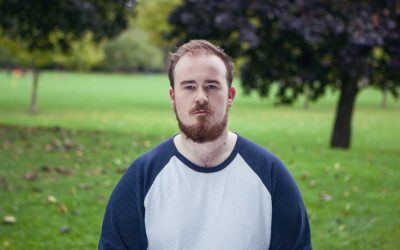Do natural variations in hormones, such as oestrogen, make anxiety disorders more likely? If so does this affect the way people respond to treatment?

Help Overcome and Predict the Emergence of Suicide (HOPES)
MQ-funded HOPES project aims to develop a model to predict who is at risk of suicide – analysing brain scans and data on suicidal behaviour and traits of young people from across the world to identify specific, universal risk-factors.
Suicide is the second leading cause of death for young men and women worldwide. It proves fatal for around 800,000 people each year and many more make at least one attempt over their lifetime.
Though we know that mental illness is one of the largest risk factors for suicide, it is not yet possible to accurately predict who is in short-term danger of attempting suicide – leaving millions of individuals and their families at risk of devasting consequences of suicide.
The project
The HOPES project aims to develop a model to predict who is at risk of suicide – analysing brain scans and data on suicidal behaviour and traits of young people from across the world to identify specific, universal risk-factors.
Ultimately, this aims to give those working with young people the tools to powerfully predict individuals at highest risk of suicide, so they can be reached for timely intervention and suicide prevention.
The process
The project will be led by Dr Anne-Laura Van Harmelen at the University of Cambridge, working with a scientists from the United States and Australia.
A unique feature of the project is that for the first time, the brain images collected through the ENIGMA consortium, will be analysed as a suicide research tool. Enigma is a global network of brain researchers which brings together data from around 4,000 young people across 15 different countries.
Combining imaging data with other existing medical and psychological datasets, they aim to create the largest dataset of its kind looking at the emergence of suicide in young people. This will allow them to build new insights into why some people develop suicidal thoughts and behaviours and others don’t – and identify unique social and biological factors that make young people more likely to attempt suicide regardless of their diagnosis.
The potential
The ambition of the HOPES team is to build on existing research and start to collect new data from young people at risk. This could include health service data, self-reporting on daily routines and information gathered from personal interviews.
This research could provide vital insight to be able to develop a healthcare tool to help practitioners identify and better support people most likely to consider taking their own lives and intervene when they are at the highest risk.
The HOPES team:
Anne-Laura van Harmelen, University of Cambridge (Principal Investigator)
Nick Allen, University of Oregon
Mario Alvarez Jimenez, Orygen, The National Centre of Excellence in Youth Mental Health
Randy Auerbach, Harvard Medical School
Hilary Blumberg, Yale School of Medicine
Lianne Schmaal, Orygen, The National Centre of Excellence in Youth Mental Health

Dr Anne-Laura van Harmelen is an Royal Society Dorothy Hodgkin Fellow at the University of Cambridge. Her research has looked at why some children and adolescents develop mental health problems, and others do not, and to develop and test novel treatments.
Was this information helpful?
Related research profiles
Sensitive periods for the effects of depression on suicide risk: a longitudinal study of gene-environment interactions and epigenetic mechanisms
Dr Lussier aims to determine the extent to which child and adolescent depression interacts with genetic susceptibility to influence suicide risk in early adulthood.
Increasing access to social prescribing for people living with severe mental illnesses at risk of cardiovascular disease
People with severe mental illnesses are at high risk of heart disease due to lack of physical activity and social isolation. Social prescribing can help, but is it accessible?


